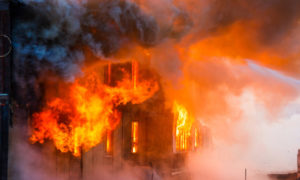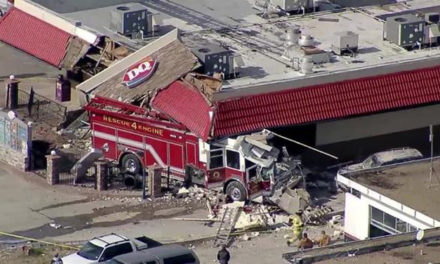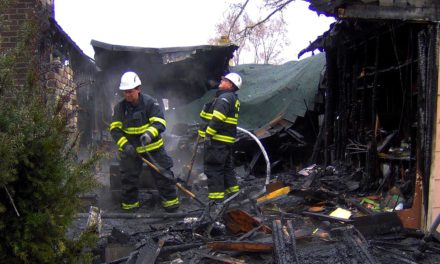 Heather Mishlanie and her 6-year-old daughter Taylor died in January 2018 in a fire in their second-floor apartment in Yorkville, New York, a suburb of Utica. Relatives of the deceased (Heather’s father, and also Heather’s ex-husband and Taylor’s father) have filed or will be filing notices of claim against Yorkville and the Yorkville Fire Department alleging that the failure to call out the Utica Fire Department — which has a fire station fewer than 2 miles from the apartment — contributed to both deaths.
Heather Mishlanie and her 6-year-old daughter Taylor died in January 2018 in a fire in their second-floor apartment in Yorkville, New York, a suburb of Utica. Relatives of the deceased (Heather’s father, and also Heather’s ex-husband and Taylor’s father) have filed or will be filing notices of claim against Yorkville and the Yorkville Fire Department alleging that the failure to call out the Utica Fire Department — which has a fire station fewer than 2 miles from the apartment — contributed to both deaths.
According to news reports, Firefighters from the Yorkville and Whitesboro fire departments were the first responders to the fire. Three other volunteer fire departments were called approximately seven minutes after the initial call. The Utica Fire Department, which had fire apparatuses available at the time, was never called during any part of the response.
The Yorkville Fire Department said that the main factor in the fatalities was the lack of smoke alarms in the second floor department. However, the claimants believe that the failure to call out the Utica Fire Department was a proximate cause of the fatalities, and they have filed a notice of claim against the Village and the Fire Department.
Notwithstanding the terrible tragedy, it seems that the claimants will have a difficult time successfully imposing liability on the part of the Village or the Fire Department. There is a strong public policy argument against imposing liability for the failure of government to act appropriately, i.e., when government acts negligently and such act harms a specific individual.
The Court of Appeals wrote in McLean v. City of New York, 12 NY3d 194 (2009),
The rationale of the rule … is that exposing municipalities to tort liability would be likely to render them less, not more, effective in protecting their citizens. Lawsuits … are not the only way of dealing with governmental failure—and might even impel governments to withdraw or reduce their protective services. In Lauer (95 NY2d at 101), we quoted our warning in Steitz v City of Beacon (295 NY 51, 55 [1945]) that a “crushing burden” should not be imposed on a governmental body “in the absence of [statutory] language clearly designed to have that effect.”
The Appellate Division, Second Department, noted settled law in 2014 when it stated in Kirchberger v. Senisi, 996 NYS2de 656, that a municipality will not be held liable for the failure to provide fire protection in a specific case, because the duty to provide fire protection is owed to the public at large rather than to any particular individual.
The exception to this rule is when a special relationship develops between the provider (the municipality or the fire department) and the injured parties. According to the Court of Appeals in Cuffy v. City of New York (902 NYS2 594), the elements of that special relationship are: “(1) an assumption by the municipality, through promises or actions, of an affirmative duty to act on behalf of the party who was injured; (2) knowledge on the part of the municipality’s agents that inaction could lead to harm; (3) some form of direct contact between the municipality’s agents and the injured party; and (4) that party’s justifiable reliance on the municipality’s affirmative undertaking.”
The claimant’s attorney has given his reason for holding the Village and the Fire Department liable: “[t]he call actually came in at approximately 8:50 on January 18th and it doesn’t appear that anybody entered the premises until about 18 minutes thereafter so this fire was burning after the first caller had called in for a good 18-19 minutes before anybody entered. Utica is a fully staffed, fully equipped accredited fire department that is less than 2 miles away from this fire site and they were never called to come in to assist and they could been there probably within a minute, minute and a half of the first call coming in and potentially saved these lives.”
However, these facts do not appear to lend themselves to the evolution of the law to permit liability in negligence cases. The decision to call out three departments before Utica might be second guessed – and it might not have been appropriate – but it does not appear to create liability in the Village or the Yorkville Fire Department. We will stay tuned to this case to see if new law is created.





